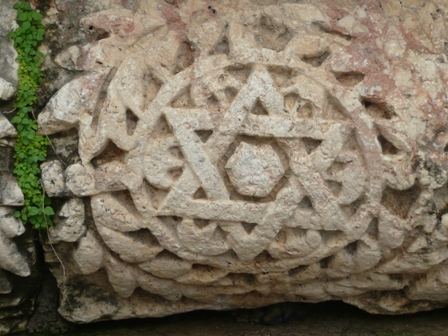Most Christians have never heard of Messianic Judaism, but Messianic Judaism is the oldest form of Christianity. Before Christianity was called Christianity, the disciples of Jesus were a small band of Jews, worshipping God along with other Jewish people. The only thing that made them different from other Jewish people was their belief that Jesus of Nazareth was the promised king predicted by the prophets of Israel to redeem Israel. They believed he was the Messiah (Christ) sent to bring a golden-age of peace.
Jesus + Judaism = Messianic Judaism
Messianic Judaism teaches both the Hebrew Scriptures (Old Testament) and the New Testament. Messianic Judaism is Sabbatarian, setting aside the seventh day of the week, from sunset Friday to sunset Saturday, as a holy day of rest and worship. Messianic Jews and Gentiles keep the Jewish calendar, celebrate the weekly Sabbath, enjoy the Jewish holidays, and participate in the synagogue liturgical tradition. We believe in the divine nature, virgin birth, death, resurrection, ascension, and second coming of Jesus of Nazareth.
Messianic Judaism is a Jewish religion, but it’s not just for Jews. In the days of the New Testament, Jewish and Gentile believers in Yeshua worshipped together, participating together in the prayers, rituals, expressions, and customs of daily Jewish life. They understood the person and teaching of Jesus from within the context of Judaism and the Jewish world-view. They kept the Passover together in remembrance of him and worshipped together in synagogues and homes.
The modern Messianic Jewish movement began in the eighteenth and nineteenth century as Jewish believers in Jesus sought to reconcile their faith in Jesus with their Jewish heritage. Messianic Jews are like any other Jewish people except that they also believe that Jesus is the Messiah (Christ). Messianic Gentiles are Christians who do not have a Jewish background but have chosen to worship alongside Messianic Jews and participate with them in the practice of Messianic Judaism.
Based on the teachings of Paul and the other apostles, Messianic Judaism recognizes that Gentiles do not need to become Jews to be accepted by God. Accordingly, we do not consider Gentile Christians or Messianic Gentiles obligated to keep aspects of the Law that relate specifically to Jewish identity such as circumcision, Sabbaths, holy days, or Jewish cultural practices. Nonetheless, we welcome, invite, and encourage Gentile Christians to participate along with us as disciples of Jesus, the King of the Jews.
